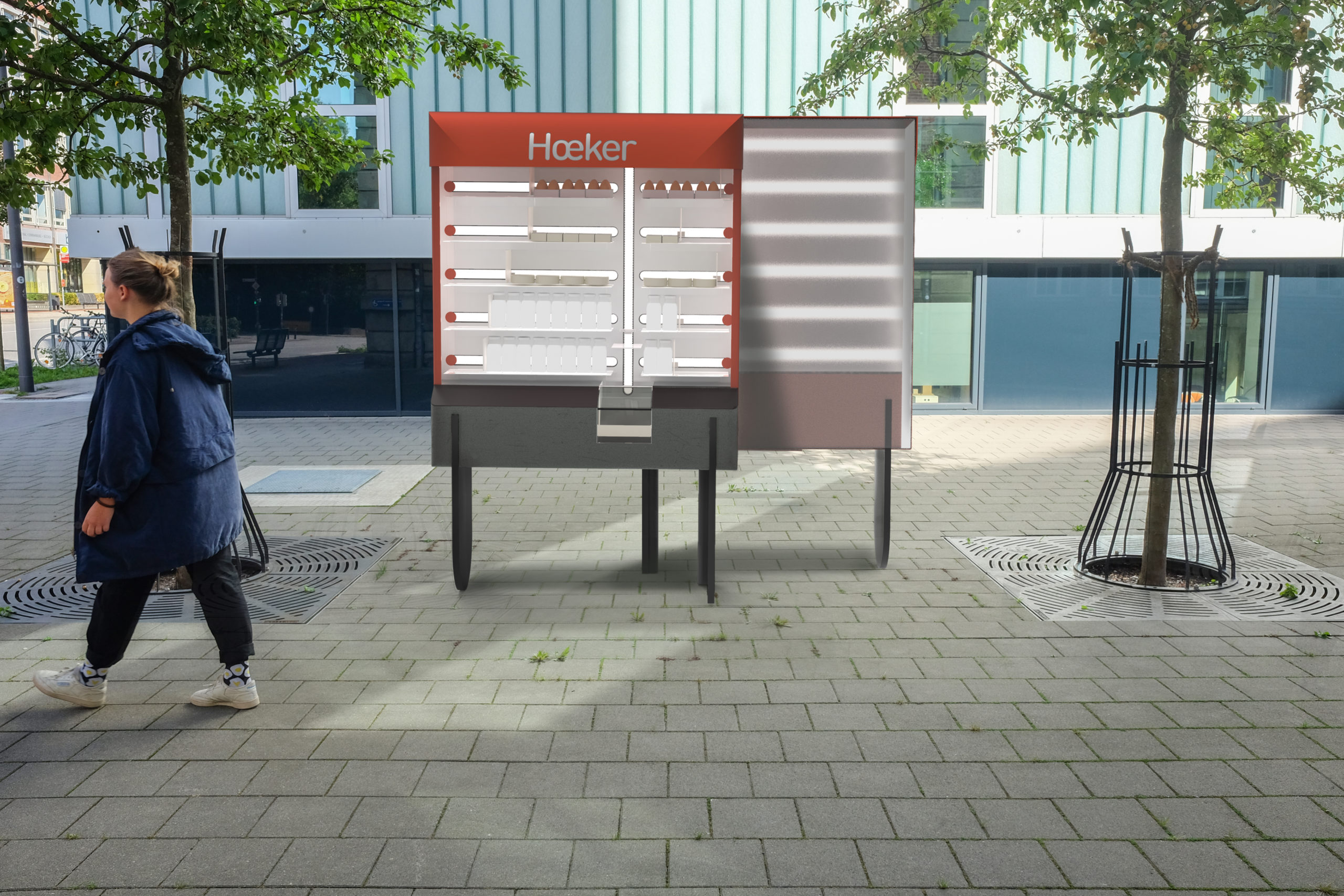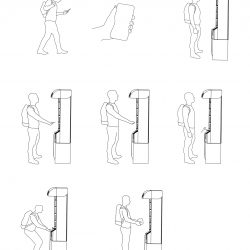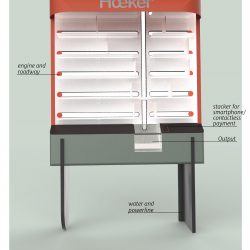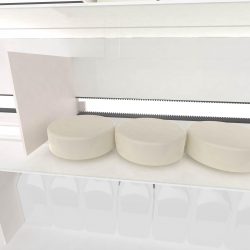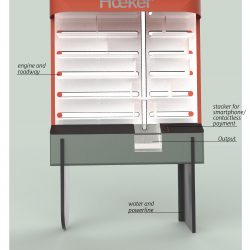Hoeker – konventionelles Gut
Description
Hoeker is a vending machine that distributes milk and egg products located the city center. A conceptional company behind it organizes the communication between farmer and machine. Supervised by Prof. Martin Postler and Prof. Annika FryeWhat is the Topic?
In my bachelor thesis I have dealt with the excessive export and the environmental damage of manure. Manure contains nitrogen, which is needed by the plants to grow. In too large quantities, the nitrogen significantly damages the plants and the environment. There are so many farm animals in (German) agriculture that their waste has become an environmental problem. The solution would be to keep fewer livestock. However, many farmers are in a spiral between low purchase prices and too high conditions to survive as a small business.
Why does it look like this?
For the design I was inspired by market stalls. The machine is installed ist permanently installed and not movable. The machine is mostly transparent. All goods are visible and do not disappear behind a front. The roof and the shelf at the front protect the user. Most important are hygiene and practicability. The interior is made of stainless steel. The shelves are removable and can be exchanged with the products. Communication is via the smartphone. There is ordered and paid. If you stand in front of the vending machine, this brings the products to the exit via the lift.
What is special?
Hoeker consists of the machine and the company behind it. Through better financing and organization, farmers are trying to break the cycle of agriculture and improve the quality of their farms. Farmers sell their products to Hoeker, are paid adequately, and are required to improve their standards step by step, for example through fewer animals with more freewheel and better feed. Slow development creates sustainable change. In the problem many partys (politics, economics, consumers) are involved that there is no easy solution by changing an actor. Hoeker offers farmers and consumers together the opportunity to improve the situation, without giving the main responsibility to a party.
What is new?
My bachelor thesis deals with the symptom of a very complex problem, with many actors who all have their responsibility in causing but also in the possible solution. Hoeker does not try to solve the problem immediately, but to relax the situation through small steps in order to sustainably improve it. The responsibility is not passed on to a single actor, but worked collectively. Hoeker stands for the economy, she sets the framework. Farmers give the goods and thus improve the problems caused by them. The consumer gets transparency and quality and at the same time finances the process.

